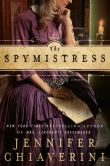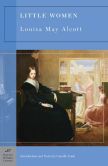
Review of Angels Watching Over Me by Michael Phillips
Overview from www.barnesandnoble.com: Book 1 of SHENANDOAH SISTERS. Two young Southern girls, one the daughter of a plantation owner and one the daughter of a slave, barely survive the onset of the Civil War and the loss of both their families. When these tragic circumstances bring them together, they join forces to discover if they can make a life for themselves. As their preconceptions give way to experience, they gradually learn to value their contrasting and complementing strengths and skills as they face the formidable task of keeping body and soul together in the aftermath of this devastating war. But is it possible the Lord they have come to know has something bigger in mind for the plantation than either of them can imagine?
My Review:
The book for this week’s review is about two strong
women characters. Surprisingly though, it was written by a man.
The story is told through the eyes of Mayme
otherwise known as Mary Jane, for the most part. It begins with her and then leads into Katie’s story. Though Katie’s tale is in the third person as
though it is Mary Jane’s retelling of her story.
Both girls lived in North Carolina near the end of
the Civil War and both are in their late teens though I believe Mayme was older
by a year. They both find themselves the only ones left alive at their
respective family homes after a marauding party of Confederate soldiers comes
through that part of North Carolina, killing everyone else.
They latch on to each other for survival though
perhaps Mayme is by far the more experienced in the ways of the world and thus
takes charge, at least at first. She does most of the chores and other work but
more and more Katie asks Mayme to teach her things. She begins to take a more
active role.
The first order of business is to convince outsiders
that nothing is wrong and that her mother is still alive and well. If anyone
were to find out that she and Mayme were alone together, it would mean serious
trouble for both of them but especially Mayme who has been sleeping in a white
man’s bed.
I have to admit that Katie seemed a little weak to
me at first but she grew on me even as her character grows and becomes stronger
on the inside. She becomes strong enough not only to understand the way things
really are but to do something about it and help another human being or two
along the way.
It is a beautiful story. I love the way these two
rely on each other and learn to trust in God in the process. They become like
sisters and the way they love each other transcends the racial and cultural
barriers placed upon them by the time period.
I don’t know how they will survive together but even
if they don’t, at least they will have known that there must be a better way
than to hate. It may sound trite but it’s a great story and not your typical
Civil War Era fare. I highly recommend it.

